1) A New Era
Bernard Henson's unique life began, appropriately, at that moment when hopes for the future are brightest - the first day of a new season.
Pretty special for a football fan. But August 25th 1934 had an extra relevance. It marked not just a new season, but the birth of a whole new era for the club.
Before the 1-1 draw against Wolves at Filbert Street, 20,000 City fans, still feeling the shock of manager Peter Hodge's death a few days earlier, stood in silent tribute.
The first chapter of the LCFC story (post 'Fosse') had been the Hodge era. In the 1920s he built our first great side, then after leaving for Manchester City, came back in 1932 to rescue us from the threat of relegation. In the season just ended he'd taken us to our first FA Cup semi-final. Things were looking good.
Then suddenly he was gone.
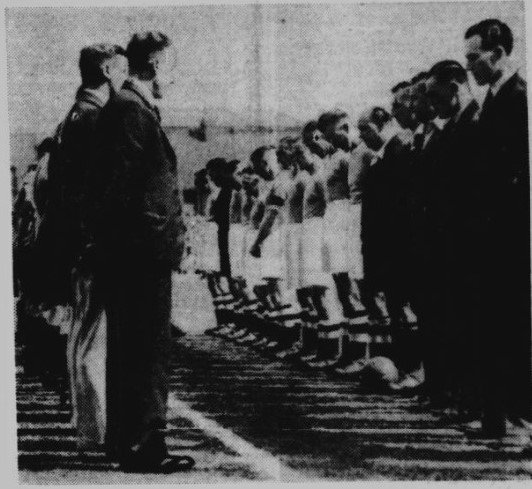
The photo shows the scene that day.
Of course, when they make 'Bernie: The Movie', these two moments will overlap perfectly.
Just as the minute's tribute is drawing to a close, a baby's scream will shatter the silence, signaling new life and new hope.
What a scream it must have been.
2) Historian
If decibels were the decider, Bernie would have beaten us all to the title of 'Leicester's Greatest Fan'. But that part of him, the one most of us remember, is but a single dimension of the Bernie character. There was another, much quieter side to him.
That was Bernie the historian. He'd have beaten us on quiz night, too. He had an encyclopedic knowledge of the club's past, and spent hours cutting out Leicester City reports from newspapers, pasting them into scrapbooks
Sadly, towards the end of his life, much of his collection appears to have got lost, especially when he moved into a care home after his beloved wife, Sylvia, passed away.
When Bernie himself died with no surviving relatives, his friend Denise had to buy the remaining scrapbooks at auction.
It's highlights of that material that will be presented here.
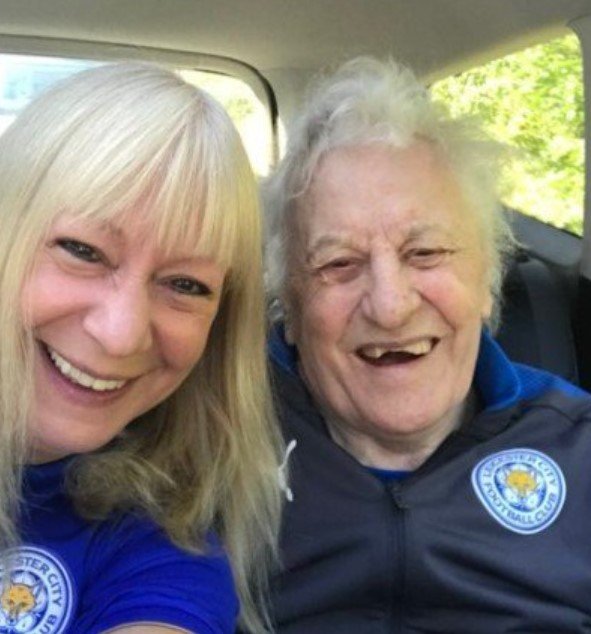
3) Sileby Boys
Bernie's family lived in Wellbrook Avenue, Sileby, eight miles north of Leicester.
You can see it marked on this map from just after war:
His address is a key part of this tale because Bernie was brought up on the same street as Leicester's star striker.
In the 1940s, Jack Lee, dashing number nine, City hero, future England star, was another Wellbrook Avenue resident.
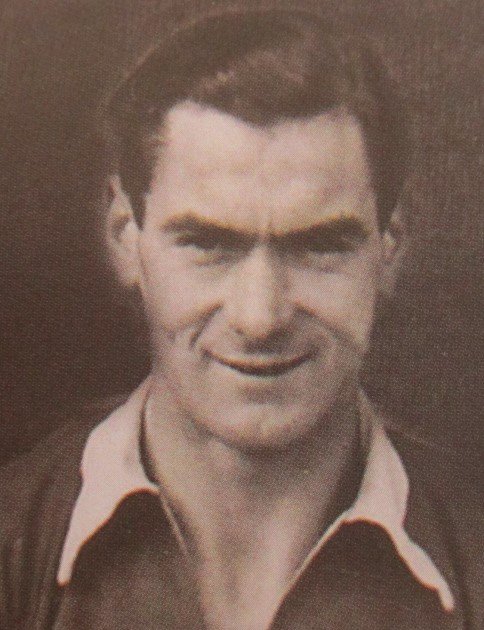
Lucky Bernie.
It would be like a young boy today living on the same street as Jamie Vardy. Except back then, footballers were members of the community.
Jack didn't have a car. He'd walk to Sileby station and get the train into Leicester every morning, past the well-wishers and autograph hunters.
He would probably have known Bernie by name.
This brings us to the oldest item in the Bernie collection...
4) So Close
Football matches played during the War aren't part of 'official' statistics. Those matches, we are told, didn't really count. But it didn't seem like that in May 1941, with a capacity crowd at Filbert Street, and hundreds locked outside.
It was the second leg of the 'Football League War Cup' semi-final against Arsenal, who were one nil up after the first match.
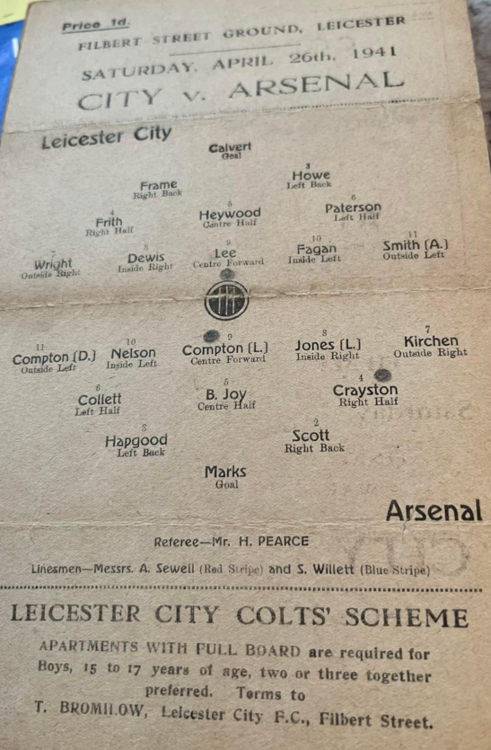
There's Jack Lee at number nine, and Billy Wright, guesting on the right wing! Jack had only joined City six months before, and it was he who put Leicester on the verge of their first ever national cup final with an early goal.
Then Arsenal fought back to win 2-1, and City were denied that trip to the final.*
That one-sheet programme is in the Bernie collection, but he wasn't at the game. He was just six years old, and he didn't go to his first match until he was almost 14.
Was it a relative who got the programme? Who knows, perhaps it was a present from the Leicester number nine.
This is a wonderful short clip of the game. Spot the fans on the roof of the Popular Side:
*historical footnote. Most Leicester histories say we'd have made our first ever trip to Wembley had we won. The final did indeed take place at Wembley, but only because Arsenal beat Leicester in this semi-final. Had City got through, it would have been played at Maine Road, Manchester, mainly due to wartime concerns about long distance travel (Preston were the other finalists).
5) Dreaming Of The Final
Here's Bernie in 1946, aged 12:
The earliest newspaper cutting in the collection is from the same year. It's the FA Cup Final, in which Derby beat Charlton 4-1.
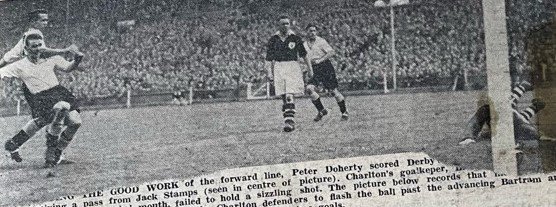
Clearly the occasion had captured Bernie's imagination.
Derby had finally overcome the famous 'gypsy curse' to win the trophy. Now there was just one big East Midlands club that had yet to do so...
6) First Game
August 21st, 1948. Leicester City v Leeds United. Bernie's first match, in the week he turned 14.
Was it a birthday treat? Well, looking at the extraordinary events surrounding that match, you can't help thinking that the footballing gods themselves planned the whole day to make it as special as possible.
City had spent a huge sum on a new pitch. No more mud heaps, now there was a shining expanse of green to greet Bernie as he came through the turnstiles for the first time.
Before the game, local hero T Lloyd Johnson was introduced to the crowd. He had just won a bronze medal at the London Olympics in the 50 km walk, and the Melton man received huge acclaim as he did a celebratory lap of the ground in his unique style.
Bernie had probably seen him in training along the roads of North Leicestershire, perhaps planting a seed in his mind about the joys of long distance walking, and he could never had imagined that, decades later, he himself would be introduced to the Filbert Street crowd (by Alan Birchenall), and invited, like Lloyd Johnson, to march around the ground.
Finally the players of Leicester and Leeds ran out, and the crowd saw for the first time a badge decorating that blue City shirt. It featured, of course, a fox:
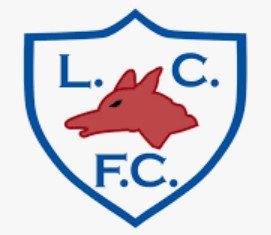
When the game started Don Revie put City ahead within two minutes, and after a breathless first half it was 2-2.
Of course, Jack Lee had to be part of the script, and in the second half he scored twice as City won 6-2.
You can imagine Bernie's joy after the game, his head already full of glorious memories, knowing that he'd discovered a passion that would stay with him for the rest of his life.
7) Buff and Green
In January 1949, the government lifted the restrictions on newsprint that had been in place since the end of the War.
This was perfect timing for City fans. It had been difficult to get hold of the Saturday evening sports paper, but just as we set off on an historic Cup run, the Leicester Mercury and the Leicester Evening Mail were free to print as many copies as they wanted, with as many pages as they wanted.
It's clear from his collection that Bernie would often buy both of these papers - the Buff and the Green 'Un.
Here they are from February 12th 1949, after our 5-5 draw at Luton in Round Five.
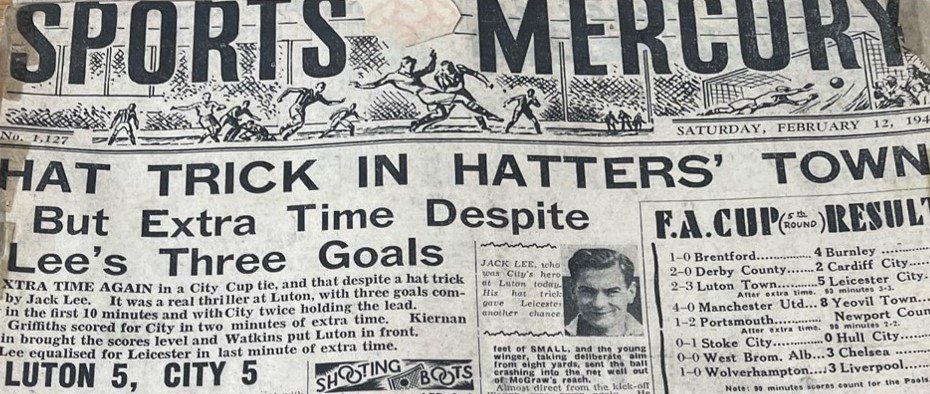
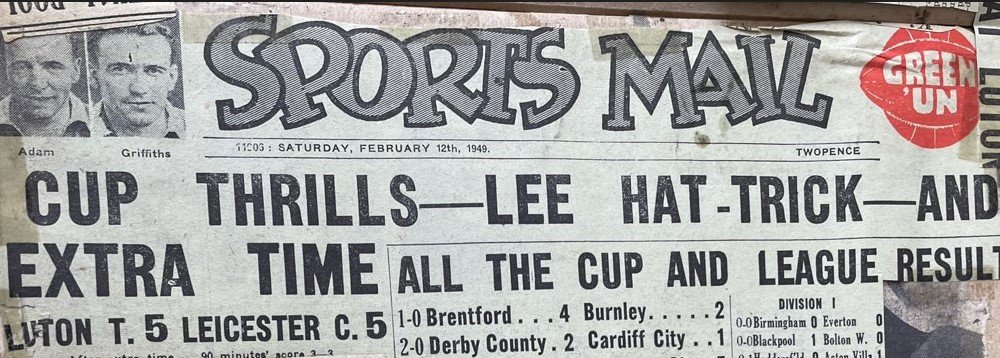
This was Jack Lee's most famous match - the equaliser in the last minute of extra time his fourth of the game.
Buff and Green reports from the quarter final win at Brentford have also survived - but sadly, nothing remains from the semi-final and final.
8) The Heroes' Departure
For Jack Lee and Don Revie, 1949/50 would see their last appearances before big money transfers.
Bernie records Revie signing for Hull:
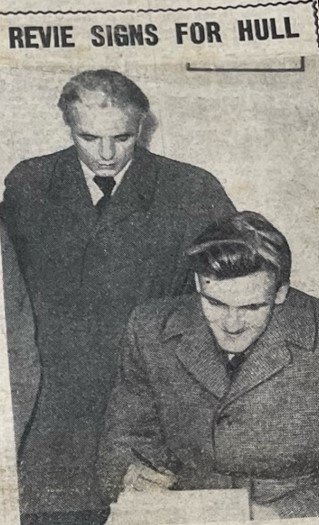
That's manager Raich Carter looking over Revie's shoulder.
There are no cuttings about Jack Lee's shock transfer to Derby County, but the move had a big impact on life in Sileby.
Dozens of people who had previously been City supporters decided to go and watch Derby instead, setting up regular coach trips to the Baseball Ground.
More than 30 people from the village also made their way over to Belfast to see his England debut.
9) Rhymes With Journey
Here's Bernie's father encouraging him to take up cycling:
Bernie certainly took the hint:
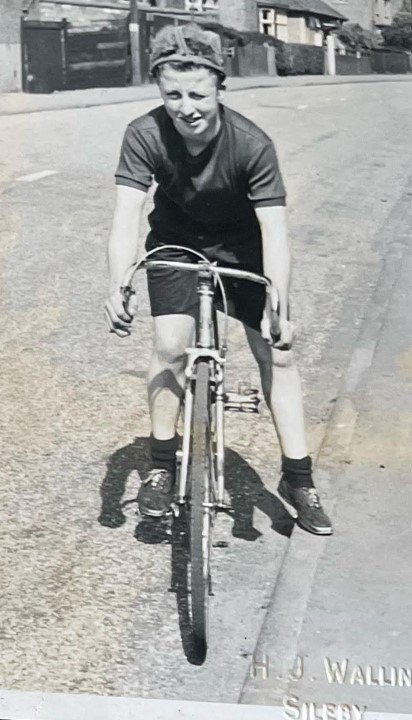
On Saturdays when Leicester were playing at home, the trains from Sileby would be full of fans heading for Filbert Street. But for Bernie, matchday was about adventure. He loved to cycle or walk to games. We know he would walk to Coventry, Derby or Nottingham, and that he pedaled as far as Luton, Grimsby and Norwich. For even longer trips he might hitch-hike.
10) Who Are Ya?
In his later years, Bernie's taunting of opposition fans became legendary (and thankfully, Forest, Derby, Leeds and all the other fans took it largely in good spirit). From Bernie's scrapbooks, though, a very different side of him is apparent.
Most of the surviving cuttings from the 1950s are match previews, in which the main content is player profiles and photos of the opposition.
Here's an example from 1949/50 - a preview of the Southampton game from the Evening Mail:
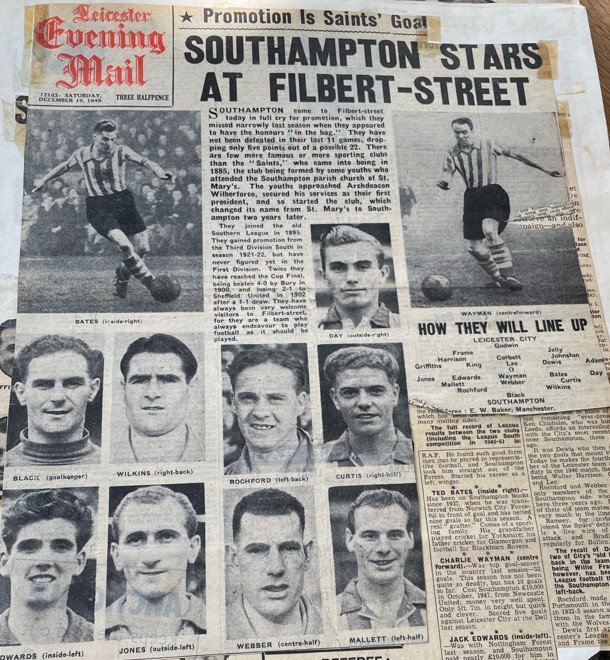
There's no post-match report from this game in the collection (it finished 2-2, with Jack Lee scoring again) - and it's the same throughout the 50s - lots of this kind of preview, very few reports.
It's possible of course that the reports have been lost, but the fact that all these previews were kept suggests that Bernie's sense of history wasn't limited to the Leicester City heroes he'd seen in action, but extended to opposition greats too.
11) Parade of Legends
And to follow that up, taken from all those match previews, here are composites of some of the players Bernie saw in the 50s.
Future England Managers (and coach):
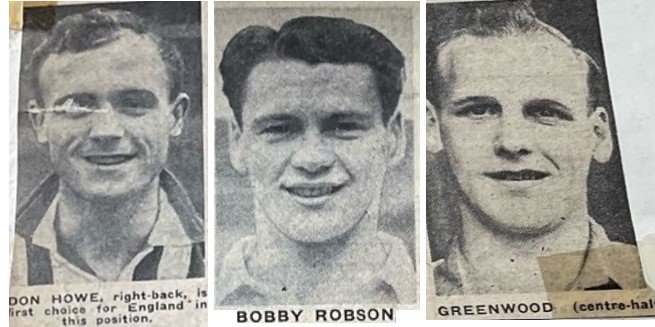
Footballers Of The Year:
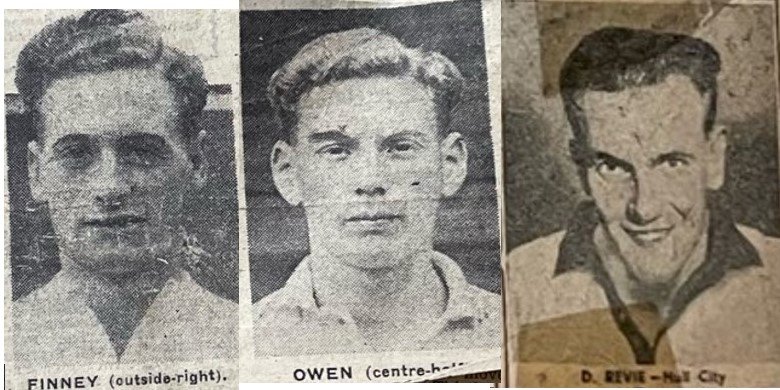
Tom Finney won it in 1954 and 1957
Syd Owen in 1959
Don Revie in 1955
Future TV Personalities:
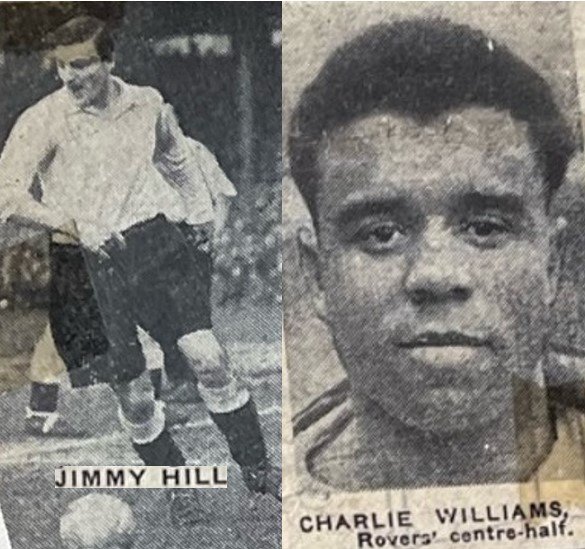
Legendary Brothers:
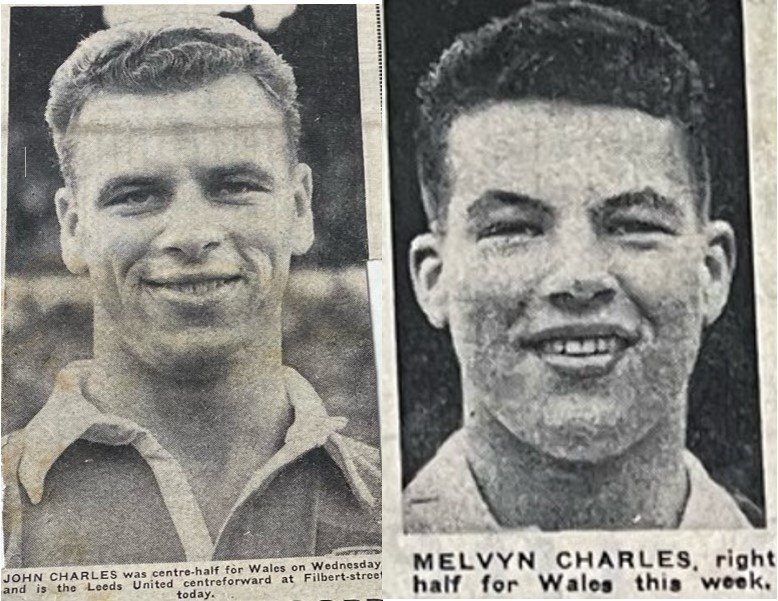
Goalscoring Greats:
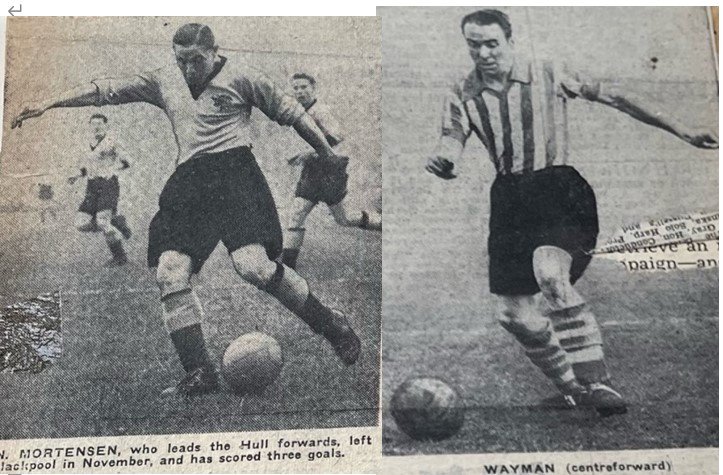
Post-war, Charlie Wayman has scored more goals against City than any other player - 17 (for Newcastle, Southampton and Preston)
All Time Great Inside Forwards:
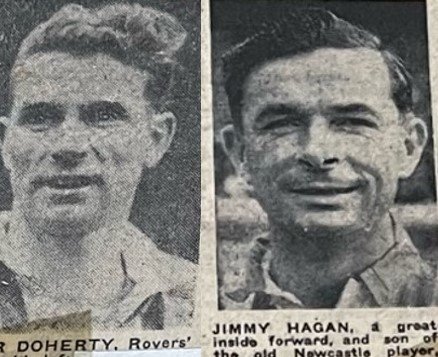
Peter Doherty of Doncaster Rovers (Man City pre-war)
Jimmy Hagan of Sheffield United
12) Jack Who?
The sale of Jack Lee to Derby caused huge resentment among City fans (though not for some in Sileby, as we have seen), and they were not convinced by this new Rowley fellow from Fulham, who we signed to replace Lee on the same day.
Two years later, Rowley had removed any doubts about the wisdom of that switch. When he scored twice in a 4-1 win at home to Rotherham, he equaled Arthur Chandler's club record of 38 goals in a season.
Bernie again put the preview in his scrapbook, but let's cheat here and show the match report instead, taken from online archives. There's Arthur heading the first:
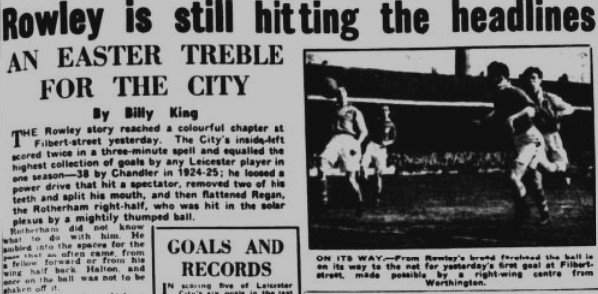
Here's another key moment from that season. Bernie records the arrival of Matt Gillies:
By the end of that season, Bernie had been following City for four years, but they were still stuck in Division Two. There follows a two year gap in the scrapbooks between 1952 and 1954 - and we know the reason. Bernie was having a whole new adventure.


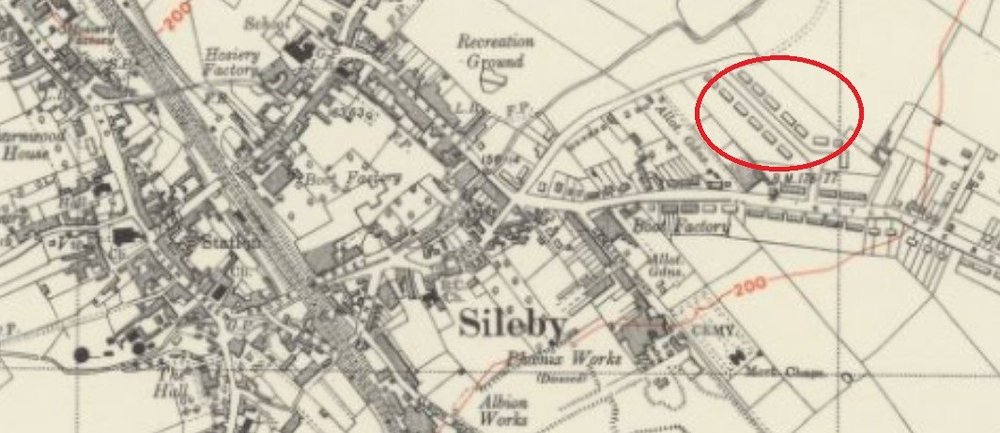
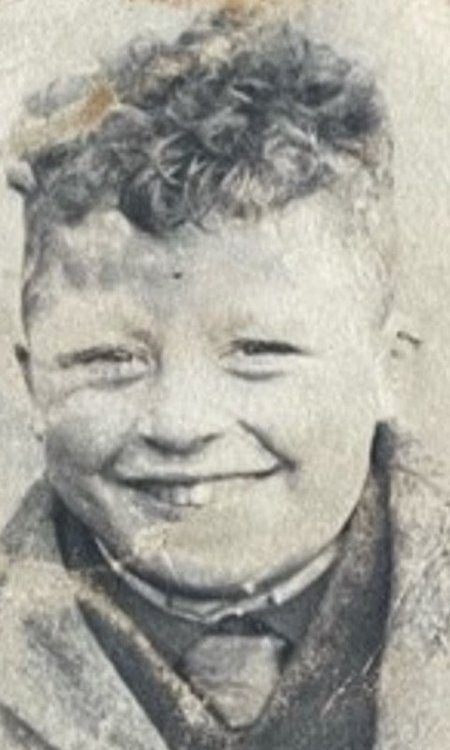
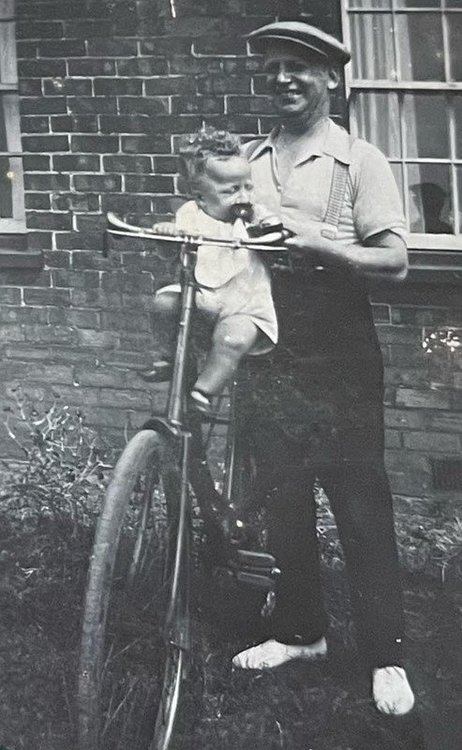
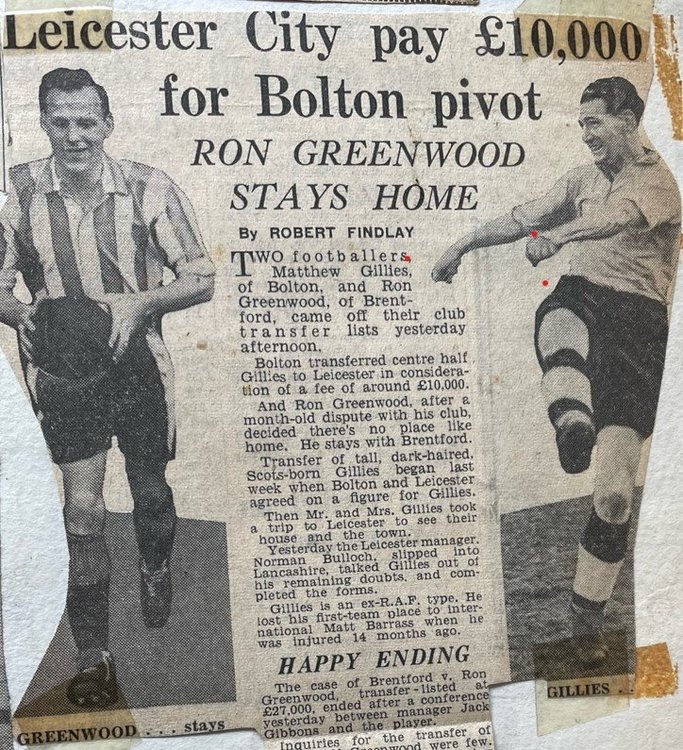


Recommended Comments
There are no comments to display.
Join the conversation
You can post now and register later. If you have an account, sign in now to post with your account.
Note: Your post will require moderator approval before it will be visible.